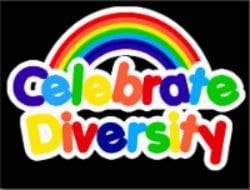By Polly-Gean Cox, MSW, LCSWA
 On June 13th, President Barack Obama held the fourth LGBT Pride reception since taking office in 2008. On Friday, the President reintroduced his 2009 declaration that the month of June will be Lesbian, Gay, Bisexual, and Transgender Pride Month. President Obama is the second president to declare Pride month after President Bill Clinton declared June Gay & Lesbian Pride Month on June 2, 2000.
On June 13th, President Barack Obama held the fourth LGBT Pride reception since taking office in 2008. On Friday, the President reintroduced his 2009 declaration that the month of June will be Lesbian, Gay, Bisexual, and Transgender Pride Month. President Obama is the second president to declare Pride month after President Bill Clinton declared June Gay & Lesbian Pride Month on June 2, 2000.
President Obama addressed several key issues regarding the LGBTQIA (Lesbian, Gay, Bisexual, Transgender, Queer, Intersex and Asexual, Ally) community including ending discrimination within the workplace, healthcare issues, the repeal of Don’t Ask Don’t Tell, as well as VAWA (Violence Against Women Act), stating “We’ve become not just more accepting; we’ve become more loving, as a country, and as a people. Hearts and minds change with time. Laws do, too. Change like that isn’t something that starts here in Washington, but it’s something that has the power that Washington has a great deal of difficulty resisting over time. It’s something that comes from the courage of those who stood up, and sat in, and came out. It’s something that comes from the compassion of family and friends and coworkers and teammates who show their love and support.”
LGBT Pride month would not be possible without the Stonewall Riots of 1969. These riots were a major turning point in the modern gay civil rights movement in the United States and around the world. When police raided the Stonewall Inn, a popular gay bar in the Greenwich Village section of New York City on June 28, 1969, the streets erupted into violent protests that lasted for six days. The actions of those participating in the riots and following the riots paved the way of the modern fight for LGBTQIA rights within the United States
Social workers are bound by a Code of Ethics to regularly seek out education, understand, and respect those of diverse backgrounds. According to the National Association of Social Workers Code of Ethics, social workers should obtain education about and seek to understand the nature of social diversity and oppression with respect to race, ethnicity, national origin, color, sex, sexual orientation, gender identity or expression, age, marital status, political belief, religion, immigration status, and mental or physical disability. Therefore as social workers it is our responsibility to advocate for various populations.
After witnessing several friends within the LGBTQIA community struggle with the denial of basic human rights, inadequate healthcare services, and bigotry, I have since made a decision as a social worker to become an advocate for this population.
Celebrations are being held global and throughout the nation, and North Carolina Pride events can be found here. I encourage my fellow social workers to attend their local Pride event if possible.




